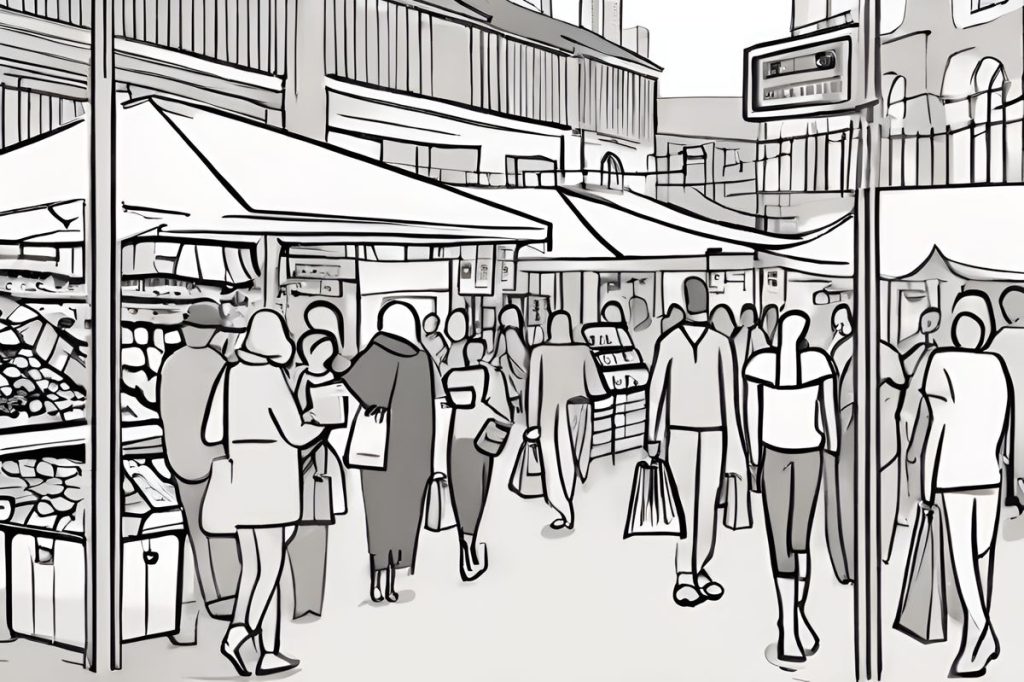The zero VAT rate on essentials like milk, eggs, and diapers will end on September 30, while discounts on electricity bills will stop on November 1, leaving consumers feeling the pinch as the government cites stabilizing inflation as the reason for this change. Amid growing public protests and criticism from opposition parties, the debate about the impact of these measures and the need for better support continues to heat up, highlighting the ongoing struggles of everyday citizens.
When are the VAT relief measures on essentials ending?
The zero VAT rate on essential goods such as milk, eggs, and diapers will end on September 30, and the discount on electricity bills will cease on November 1. These measures were introduced to ease financial burdens but will not be extended further by the government.
The End of Zero VAT on Essentials
It’s been a contentious issue, stirring debate amongst the public and opposition parties alike. Essential goods such as milk, eggs, and diapers had been exempt from VAT to ease the financial burden on consumers. This respite, however, is approaching its expiration date. The current administration has announced that these measures, including the discount on electricity bills, would cease by the end of the fall season. While the zero VAT on a dozen essential products is set to conclude on September 30, relief on electricity bills is expected to end on November 1.
Previously, extensions to these support measures had been granted due to public outcry, but it appears the government is unlikely to continue this trend. The Finance Ministry cites an anticipated stabilization of the inflation rate at around 2 percent as the primary rationale for not prolonging the relief initiatives. Indeed, recent months have evidenced a downward trend in the inflation rate, further diminishing the justification for these temporary economic crutches.
Consumer Reactions and Government Justifications
Public response to the announcement was swift and predictable, with protests from some sectors. Opposition parties have been particularly vocal, suggesting that the government is out of touch with the financial struggles of ordinary citizens. They argue that the discontinuation of these measures represents a disregard for the societal impact of persistent high prices. The Finance Ministry’s argument rests on the idea that benefits and pensions, adjusted in line with the Cost-of-Living Allowance (CoLA) — a figure reflected in wages — are sufficient to help the populace navigate the economic landscape.
However, with less than a third of the private workforce receiving CoLA, this reasoning falls short for many. Critics, including notable opposition voices, highlight that fixed incomes such as the minimum guaranteed income have not seen adjustments commensurate with the rising costs of living. This discrepancy suggests that the measures in question may have been more crucial than the government’s stance would imply.
Looking Forward: The Impact of VAT Reinstatement
As the zero VAT measures draw to a close, questions arise about the real impact of their removal. It’s true that abolishing VAT on select products intended to provide financial relief, but did it truly safeguard living standards? Some argue it was a symbolic gesture, a way for the government to show it was taking action. Yet, prices have continued to ascend, and the actual difference these measures made to disposable incomes may have been negligible.
In a strategic tug-of-war, political entities continue to posture as champions for the economically vulnerable. In this climate, the government’s justifications for sunsetting the VAT relief can seem unnecessary, or worse, tone-deaf. As these temporary measures wane, the broader debate about how best to support citizens in times of economic upheaval continues without a clear resolution on the horizon.
As we move into the next phase of economic policy, the dialogue around inflation, taxation, and cost-of-living adjustments remains as vital as ever. With the termination of VAT relief measures, it’s evident that new strategies will need to be devised to address ongoing financial challenges faced by the populace.
FAQ on VAT Relief Measures
When are the VAT relief measures on essentials ending?
The zero VAT rate on essential goods such as milk, eggs, and diapers will end on September 30, and the discount on electricity bills will cease on November 1. These measures were initially implemented to alleviate financial burdens on consumers but will not be extended.
What was the rationale behind ending the VAT relief measures?
The government cites an anticipated stabilization of the inflation rate at around 2 percent as the primary reason for discontinuing these relief initiatives. Recent trends indicate a downward shift in inflation, which led the Finance Ministry to conclude that there is no longer a need for these temporary economic supports.
How have consumers and opposition parties reacted to this decision?
Public response has been largely negative, with protests erupting from various sectors. Opposition parties are particularly vocal, arguing that the government is disconnected from the financial struggles of ordinary citizens. Critics assert that ending these relief measures indicates a lack of understanding regarding the ongoing challenges posed by high prices and insufficient income adjustments.
What could be the potential impact of reinstating VAT on essential goods?
The removal of the zero VAT rate is expected to impact living standards, as it might lead to increased prices for essential goods. While the government argues that prior measures were a symbolic gesture, many consumers may feel the pinch as costs rise. Ongoing discussions around inflation, taxation, and cost-of-living adjustments indicate that new strategies will be necessary to effectively support citizens facing economic hardships.

